
 Flash News
Flash News
Requesting conditional release, Ervin Salianji arrives at the Fier Court
Fire in Lura, flames endanger the National Park
International drug search: 36-year-old arrested in Durrës (NAME)
Veliaj's appeal to be heard today in the High Court
Today's hearing at the Fier Court, Salianji requests conditional release
"New York Times" report: Luxury tourism in the Narta Lagoon, ecological costs and government corruption
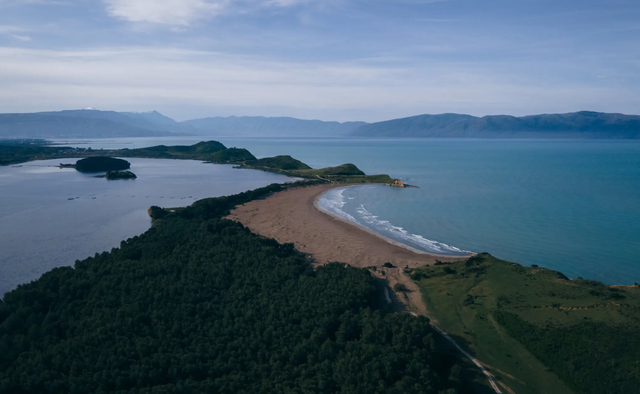
"The New York Times" has dedicated a report to Albania, and specifically, to the Narta Lagoon, which has been put at the center of projects by the government and foreigners.
This concerns the construction of the Vlora International Airport within the Vjosa-Nartë Protected Area, as this construction violates international agreements.
The article describes the Narta Lagoon as a place prized by birders for its rich diversity of fauna.
“Our destination was a hill that would offer us a view of the 59,000-hectare Vjosa River Delta, which includes the lagoon as well as sand dunes, forests, salt marshes and fishing villages. The delta is home to a myriad of plant and animal species, some of whose populations are dwindling, such as the Dalmatian pelican. When Lear made his painting of the bird, the species was already in decline due to hunting and habitat loss. Today it is listed as “near threatened” by the International Union for Conservation of Nature and in Albania specifically as “critically endangered” by the Ministry of Tourism and Environment – which is why places like this delta are essential for its survival ,” the article says.
In December last year, the Standing Committee of the Berne Convention called on the Albanian government to halt the construction of the Vlora International Airport within the Vjosa-Narta Protected Area. During its annual meeting in Strasbourg, the Committee expressed its deep concern about the continuation of the works and called on the Albanian authorities to cooperate with civil society and other interested parties.
“It deeply regrets that the construction of the airport continued despite repeated calls from the Bureau to suspend construction until a new and sufficient Environmental Impact Assessment (EIA) Procedure and a proper assessment of environmental impacts are carried out ,” the Committee stated at the time.
The New York Times also refers to the project of Jared Kushner, son-in-law of US President Donald Trump. In January of this year, the Committee on Strategic Investments granted strategic investor status to a company affiliated with Kushner for the construction of a tourist resort on the island of Sazan.
According to the decision, an investment of 1.4 billion euros is foreseen on the island and construction is expected to extend to 8 percent of the island or 45 hectares.
When the Vjosa River was declared a national park in March 2023, its delta was excluded from the park's boundaries. The delta and its lagoon were already protected from major developments at the time, by national laws and international conventions written to protect exceptionally biologically diverse areas.
But in February 2024, Albania’s parliament gave a commission headed by Rama the authority to approve major tourism infrastructure projects in protected areas. The law was passed three days after Kouchner announced his development plans. Officials from the Prime Minister’s Office and the Ministry of Tourism and Environment did not respond to requests for comment.
Describing it as 'luxury tourism', the NYT writes that the development of these projects in the Narta Lagoon could also be an economic boon for the Vjosa River Delta.
But Joni Vorpsi, an ornithologist who works for the non-governmental group Protection and Conservation of the Natural Environment in Albania, told the NYT that the cost would be huge, both ecologically and economically. His work includes pelican conservation, migration routes and research, and ecotourism initiatives.
"Rama is sacrificing treasures that could create a sustainable tourism economy here - an economy that works for everyone, not just a select few," he said.
Plus, he said, most of the revenue from the projects will likely go back to the corporations that own them, not to local people. "Locally owned, nature-based tourism will not only help the birds, but it will generate income that stays here," he said.
But most of the locals I spoke to during my week in the delta — waiters, fishermen, merchants, a founder of an adventure tourism company, our rental car agent — echoed the question: Who will benefit from the delta’s development? Some people expressed fears of overtourism and water shortages, or that they would lose land or access to the lagoon and beaches.
Others said more infrastructure would simply mean more government corruption. A woman sitting outside a market in Narta, who identified herself only as Dimitra, told me about her granddaughter who runs a roadside cafe near her village on the edge of Vjosa National Park. “She doesn’t need to lose her culture or her landscape to win over visitors.”
"We are not against tourism here, " she added. "We are against tourism that will destroy our land and our traditions."
Latest news

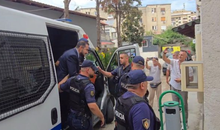
Requesting conditional release, Ervin Salianji arrives at the Fier Court
2025-07-08 11:16:36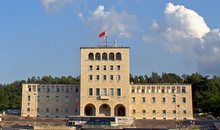
The first phase of university applications begins today
2025-07-08 11:10:52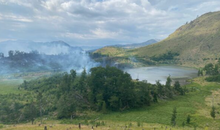
Fire in Lura, flames endanger the National Park
2025-07-08 10:53:43
Trump warns of 35% tariffs on Serbia and 30% on Bosnia and Herzegovina
2025-07-08 10:37:32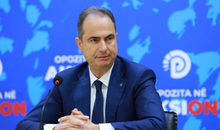
Thethi rooster and the dung cock
2025-07-08 10:24:01
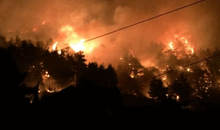
Fire in Dukat endangers Llogara National Park
2025-07-08 10:01:39
International drug search: 36-year-old arrested in Durrës (NAME)
2025-07-08 09:50:48
Thethi, tourists "criticize" modern trend
2025-07-08 09:39:54
Fire on Mount Dukat still active, Llogara National Park at risk
2025-07-08 09:28:12
Veliaj's appeal to be heard today in the High Court
2025-07-08 09:16:02
"Bad sign for democracy"/ Parliament neglects reporting by institutions
2025-07-08 09:04:56
Today's hearing at the Fier Court, Salianji requests conditional release
2025-07-08 08:56:39


Horoscope, what do the stars have in store for you today?
2025-07-08 08:16:19
Weather forecast/ How temperatures will vary throughout the day
2025-07-08 08:02:37
Morning Post/ In 2 lines: What mattered yesterday in Albania
2025-07-08 07:48:30





Marrëdhënia që s’është romancë, por s’është as thjesht kolegiale
2025-07-07 21:39:13
Citizen is asked to pay 2.5 million for a non-existent meter
2025-07-07 21:28:03

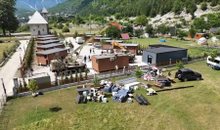
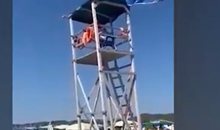

What is the ideal air conditioner temperature in summer?
2025-07-07 20:53:46
GJKKO left him in prison, Meta appeals the decision
2025-07-07 20:38:05
Where is Ronaldo after missing Diogo Jota's funeral?
2025-07-07 20:38:04

Messages from the author who killed Ilaria Sulla in Rome are revealed
2025-07-07 20:20:12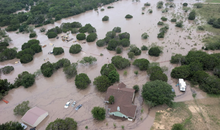
At least 91 dead in Texas floods
2025-07-07 20:12:02
Elbasan, choked by smoke, scorched by conscience
2025-07-07 19:48:16
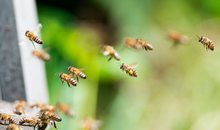
Swarm of bees attacks citizens in France, 24 people end up in hospital
2025-07-07 19:32:03
Dementia/Hearing loss may be a warning sign
2025-07-07 19:13:06
The decision for Malltez, Gjokutaj: Boomerang for SPAK and the Court
2025-07-07 19:01:08

Former Supreme Court member acquitted of asset concealment
2025-07-07 18:36:40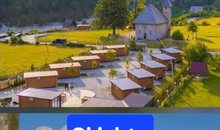

WIIW expert in Politiko: Brain drain is steadily weakening the Albanian economy
2025-07-07 18:11:41
Heart health is at risk from extreme heat, here's what you should be careful of
2025-07-07 18:10:18
Today Gert Bogdani would celebrate, Edlira Çepani's touching dedication
2025-07-07 17:40:45
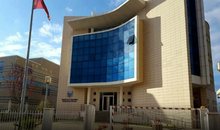


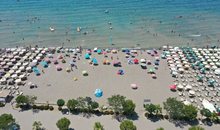


The striker severely accuses the Fenerbahce club: They tried to drug me
2025-07-07 16:21:03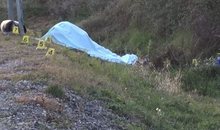
A decomposed body is found in Kolonjë, initial suspicions
2025-07-07 16:03:31
Accident in Saranda, car hits motorcycle, one injured
2025-07-07 15:58:56

The most fertile age for men and women
2025-07-07 15:40:52
Locals, Rama candidate in 5 municipalities
2025-07-07 15:32:22
Blushi: Meta's criminal kidnapping, incomparable even to Navalny's in Russia
2025-07-07 15:20:34
Meet the iPhone 17 Pro, the main innovations in design and technology
2025-07-07 15:09:09
Why the release of Abi Malltez does not free him; much less Albania
2025-07-07 15:00:12
‘Lidhjet klienteliste’ të mjekëve mbushin recetat e pacientëve
2025-07-07 14:57:33
Poland imposes border controls with Germany and Lithuania
2025-07-07 14:48:15

Caught transporting firearms from Kosovo to Albania, young man arrested (NAME)
2025-07-07 14:37:47
Theo Hernandez flies to Saudi Arabia for medical check-ups
2025-07-07 14:26:47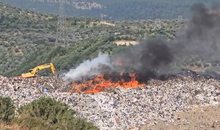

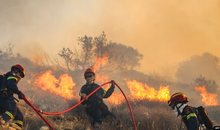
Scorching heat, Greece orders mandatory work holidays
2025-07-07 13:54:25




Trump expects Netanyahu to discuss Gaza ceasefire
2025-07-07 12:54:27
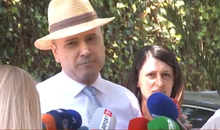
GJKKO releases Jamarbër Malltezi from house arrest
2025-07-07 12:35:02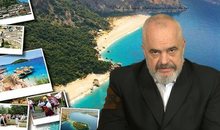
Tourism among contrasts
2025-07-07 12:31:01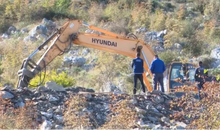
IKMT action in Theth, starts demolition of unauthorized constructions
2025-07-07 12:24:18

The Tirana-Kamëz line is destroyed by urban fire
2025-07-07 12:00:24
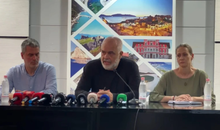

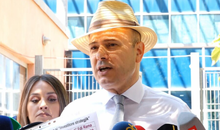

Poor direction!
2025-07-07 11:16:01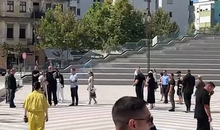


Rama to gather the country's mayors on July 9
2025-07-07 10:43:31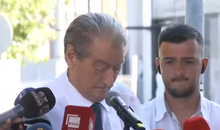
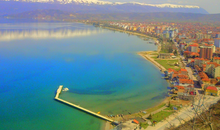
Ohrid Natural Park on the way to UNESCO's "black list"
2025-07-07 10:25:58

Registrations for the new school year begin in e-Albania
2025-07-07 09:59:09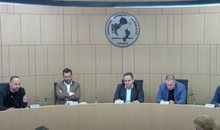
KAS decides the "fate" of the elections in four districts of the country today
2025-07-07 09:50:51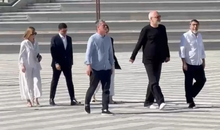
Rama does not give up on Vlora, visits the municipality again
2025-07-07 09:39:11

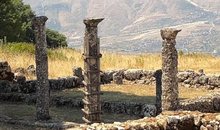
Fires in Gjirokastra, flames very close to cultural monuments
2025-07-07 09:12:49

